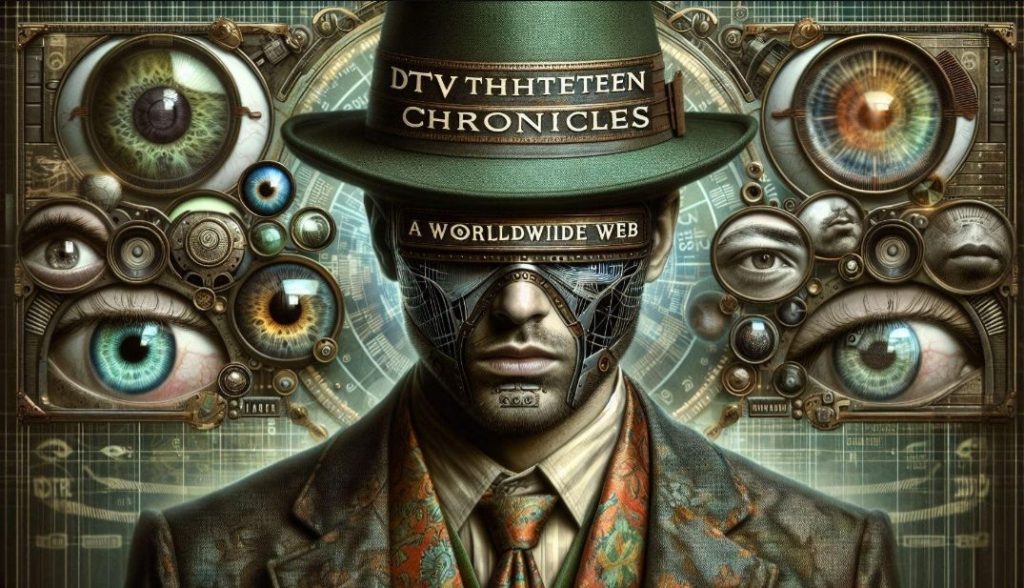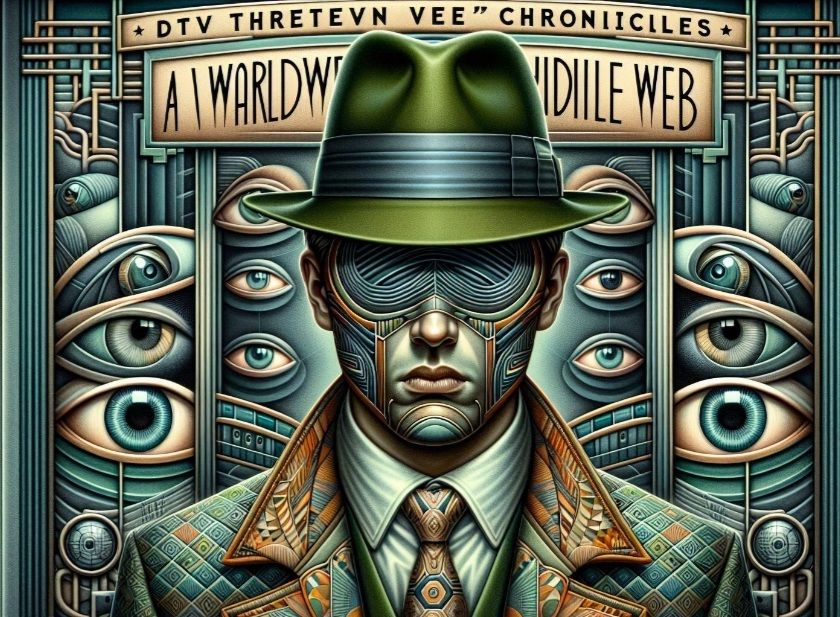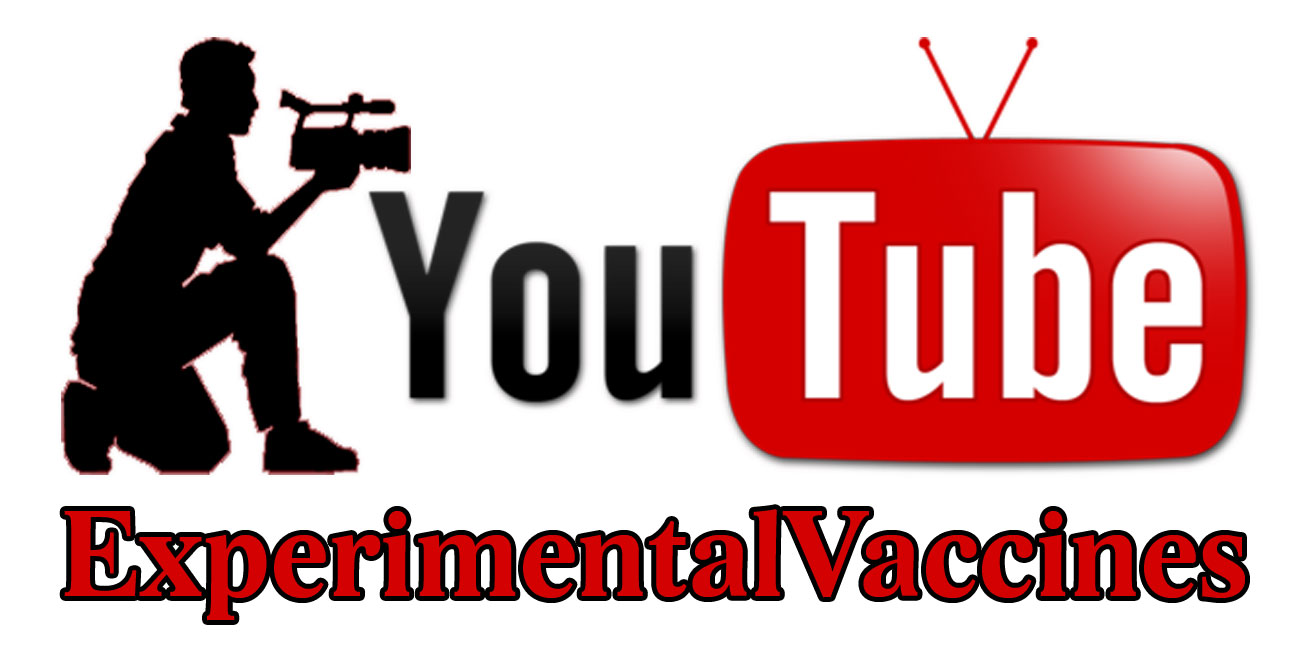Unveiling the Web: A Conspiratorial Gaze into Digital Control with Dick Vegas
on April 30, 2024 at 7:18 am
The Genesis of the Web: Opening Pandora’s Digital Box?
Unveiling the Web: A Conspiratorial Gaze into Digital Control with Dick Vegas
The Birth of the World Wide Web: A Pandora’s Box?
On April 30, 1993, the World Wide Web was released into the public domain, heralding a new era of information and connectivity. This day, marked by celebrations of technological achievement, also sowed the seeds of a pervasive surveillance system. Conceived by Sir Tim Berners-Lee at CERN, the Web was initially a tool for scientists but rapidly morphed into a global phenomenon, connecting billions and reshaping every facet of society. However, the liberating potential of the Web came with strings attached—strings held by unseen hands in the corridors of power. For more about the Web’s release, see CERN’s 30th Anniversary Reflection.

Tech Titans and the Race for Digital Dominion
As the Web wove its way into the fabric of daily life, tech giants like Microsoft and Apple positioned themselves as shepherds of this new frontier. Microsoft, under Bill Gates, dove headfirst into browser wars with Internet Explorer, aiming to gatekeep the portals through which the world accessed the Internet. Apple, after a tumultuous leadership shuffle, embraced the Web to enhance its ecosystem, offering sleek, integrated devices that appealed to the masses. Both behemoths saw the Web not just as a market but as a milieu where data was the currency and control the prize.

The Surveillance Web: Spinning the Control Threads
With the Web’s expansion, every click and query fed into a growing reservoir of data—data that could be monitored, analyzed, and exploited. The specter of Big Brother, once a dystopian fantasy, materialized through the lenses of webcams and the echoes of smart speakers. Governments and corporations, often indistinguishable in their hunger for data, leveraged technology to weave a surveillance tapestry intricate and pervasive. This new reality blurred the lines between safeguarding interests and eroding freedoms, between national security and personal sanctuary.

Historical Echoes: The Legacy of Control
This narrative of control and surveillance isn’t confined to the digital age. From the mid-20th century, governments have collected newborn blood samples, ostensibly for medical screening but also, as conspiracy theorists argue, to build genetic databases, mapping the populace from cradle to grave. Such actions reflect a long-standing pattern of behavior, where every technological and medical advancement presents an opportunity for deeper monitoring and control.

Transition to Facebook and Modern Surveillance
Interestingly, the cancellation of DARPA’s LifeLog project on the same day Facebook was launched (February 4, 2004) sparks significant conspiracy discussions. LifeLog aimed to record a massive database of personal details and behaviors, a goal that aligns eerily well with the data collection capabilities of Facebook. The overlap in these dates has led some to speculate whether Facebook effectively continued the data collection ambition under a more engaging, voluntary guise. More details on LifeLog can be found here.
Additionally, the PRISM program, started in 2007, underscores the extent of government surveillance, collecting data from major tech companies to monitor global communications for security purposes. Edward Snowden’s revelations about PRISM in 2013 confirmed many fears about government overreach into private lives through digital means. More about PRISM is available here.

The Web Today: Liberation or Oppression?
Thirty years post its inception, the Web stands at a crossroads. On one hand, it’s a democratizing force, dismantling geographical and cultural barriers. On the other, it’s a tool of unprecedented surveillance, where privacy is compromised under the guise of convenience and security. The dialogue between these polar perspectives is more than academic—it’s a battle for the soul of our global society.
A Call to Action
As we navigate this complex web, vigilance becomes paramount. Questioning the status quo, challenging the narratives fed through filtered news feeds, and peeling back the layers of what is presented as truth are not just acts of rebellion—they are acts of survival.
Join the Movement
If your website or social media channel sheds light on these issues, or if you have compelling information to share, contact me directly. Let’s amplify voices that challenge, question, and seek to understand the deeper narratives at play.
Subscribe and Support
For ongoing updates on health news, AI developments, and insights into the forces shaping our world, subscribe to experimentalvaccines.org. Dive deeper, ask tougher questions, and join a community that values truth and transparency.
Closing Thoughts
In a world interwoven with digital threads, where every swipe, click, and scroll is a potential entry into vast data vaults, awareness is our greatest shield. Embrace the journey of enlightenment with us at DV13 Chronicles, where I, Dick Vegas, delve into the shadows that technology casts over our freedoms.
As chief editor and writer for DV13 Chronicles, powered by experimentalvaccines.org, we are on a mission to unravel the hidden agendas and to shed light on the untold stories that shape our existence. From the dark corners of surveillance to the bright possibilities of informed resistance, our tales are woven with a fervor for truth and a dash of the extraordinary.
Stay curious, stay vigilant, and above all, stay connected with us. Subscribe to experimentalvaccines.org for the latest in health news and AI revelations. Together, let’s transform information into power, turning the pages of the DV13 Chronicles into blueprints for a brighter, more transparent world.
Join us, question everything, and be a part of the revolution of knowledge. Remember, in the realm of DV13 Chronicles, nothing is as it seems, and everything is to be questioned.


